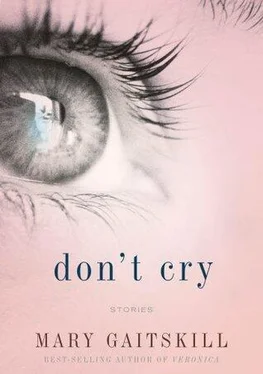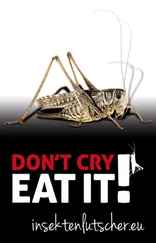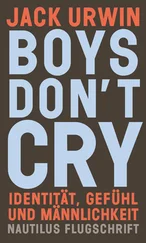But wait! The feminist author was not talking about rape, was she? Being a prostitute is not the same thing as being raped, is it? And of course they are not the same. But for the purposes of my discussion here — for the deepest layer of my discussion — they are close enough! The rape victim on TV was treated like a prostitute on an official pro-victim show, and the feminist author — well, it probably wasn't fair to talk about her that way in the pamphlet, even if nobody read it, even if it was true. Can you blame her for not wanting to be like the poor, hurt woman on the talk show, preferring to prance around, swinging her little handbag, instead? Can you blame her for trying to put a good face on it? For talking so loudly about things that have been used to shame women for centuries?
Wordless knowledge can be heavy and dark as the bottom of the ocean. Sometimes you want the relief of dryness, of light, bright words. Sometimes you might be on the side of a smart-aleck middle-aged woman who thumbs her nose at the agonized face and fellates a snotty sexy man, just for a dumb little thrill. Sometimes you wish it could be that easy.
I looked at my watch. I drank my seltzer and felt myself return to sobriety I listened to the prairie author entertain a group with a story about how he had been so drunk the previous night that, in a muddled attempt to find the bathroom, he had left his hotel room naked and had roamed the halls until a “beautiful woman” from room service had escorted him back. Everyone laughed. A harried caterer wiped her hand on her rumpled white shirt and made a disgusted face. I looked out the window; people strolled the sidewalks like sensitive grazing animals, full of trust that what they needed was to be found there on the grounds of the hotel. I heard the prairie writer cry, “And she had the most incredible ass!” There was delighted laughter.
Suddenly, I was flooded with goodwill toward the feminist author. I didn't even care that she had refused to speak with me. She wrote well enough and she was an articulate, perhaps even socially significant, figure. Why should she be dismissed, while a man who ran around naked in public and yelled about people's asses was coddled? And yet … some part of me was still troubled by the issue of the agonized face. Because the face is not only about rape and pain.
I remember how it was with my husband sometimes, or, rather, how it was on occasion, or, really, maybe just once. It was before I became pregnant with Kira. We had not been getting along, and we were trying to have a special time together. We lit a candle and we undressed and lay on the bed, outside the covers. We rubbed each other with oil. It was relaxing, and awkward, too — it would feel really good and then he would have a sneezing fit. Or I would turn his foot at a strange angle during the foot massage and he would open his eyes and tactfully try to pull it a more comfortable way. When he touched between my legs, I wasn't even thinking about sex anymore. His presence was physical and insistent, like the smell of a wild animal, like a bear, grunting and searching for food, picking berries with the elegant black finger of its tongue — but my mind had wandered away It wandered like someone browsing a junk store, its attention taken this way and that by each gewgaw, the faded, painted face of each figurine: an argument with my sister, a birthday gift for a friend, the novel I was supposed to review, and, like a tiny reflection on the curve of a glass, a scene from the novel (hero and heroine in tense conversation on a fire escape at dusk, red flowers climbing the wall, traffic darting below). Every few moments, my attention would return to my husband, and I would feel what he was doing, and caress his rough fur and then dart away again. Except with each return, I darted away more slowly, and then I didn't dart at all. His touch had entered my nervous system without my knowing it. The images in my head softened and ran together, colorful, semi-coherent, and still subtly flavored with the novel. The blunt feelings of my lower body came rolling up in dark, choppy waves. He put his hand on my abdomen and said, “Breathe into here.” I did. He didn't have to touch me anymore; the flesh between my legs was hot and fat. He touched me with his genitals. I took his large bony head in my hands. We kissed, and we entered a small place sealed away from every other place. In that place, my genitals were pierced by a ring attached to a light chain. He held the chain in his hand and we both looked at it, smiling and abashed— Whoa! How did that get there? Then I became an animal and he led me by the chain. We entered into stunning emptiness; we emerged. He moaned and bit my shoulder with his hot, wet mouth.
Afterward, we smiled, rolling in each other's arms, laughing at ourselves, laughing at the agonized face. But we couldn't laugh at the emptiness. It was like entering an electrical current, passing first into a landscape of animate light, and then into pitch-darkness, warm with invisible life, the whispering voices, the dissolving, re-forming faces of ghosts and the excited unborn. Everything horrible to us, everything nice to us. We did not conceive Kira at that time; I think that happened one sleepy morning when, without even realizing it, we entered emptiness again and brought a tiny female out of it.
My husband and I are not friends, but we are amicable. Once, after we split up, I called him late at night, after I'd had a terrible dream, and I was glad for his kind response. But I have never called him like that since, and I'm sure he is glad of it. He is now another wholly separate creature with whom I can negotiate, chat, joke, fight, cooperate with or not. But I remember that moment between us, and it is represented to me by the agonized face. It is easy to be ashamed of the face — and sometimes the face is shameful. But it is also inextricably bound up with the royalty of female nature. It symbolizes our entry into emptiness because it is a humiliation of our personal particularity the cherished definition of our personal features. Men don't go there because they can't or because they are too scared. (Okay maybe gay men go there. I'm sure they'd say they go there. But somehow I doubt it.) So they pretend to look down on us for it — but really they know better.
It is this weird combination of pride and shame that makes you want to snap at the feminist author, like a dog in a pack. Perhaps it is also what gives her an audience; I don't know. But for her to raise the issues that she sweetly raised in her earnest elf voice — the middle-aged woman pretending that humiliation is an especially smart kind of game, together with the casual mention of her experience with prostitution — and yet to leave out the agonized face? No way. If she had told the same story, even with the prostitution attached, and let us see the face — that would've been one thing. We could've sat back and nodded to ourselves, a little contemptuous maybe, yet respecting the truth of it. But to tell those stories and pretend there's no agony — it makes you want to pinch her, like a boy in a gang, following her down the street while she tries to act like nothing's wrong, hurrying her step while someone else reaches out for another pinch. It makes you want to chase her down an alley, to stone her, to force her to show the face she denies.
Which in a metaphorical sense is what I did with my article. When I turned it in, the managing editor said, “Whew! She sure pissed you off, didn't she?” And I said, “Do you think it's too much?” And the editor said, “No, if that's what you feel …” Although, of course, I didn't say what I “feel.” I couldn't, because it could not be printed in a newspaper. I had to speak in the fast brute code of public discourse and count on people to see the subtler shapes moving in the depths below the conventional grid of my words.
Читать дальше












